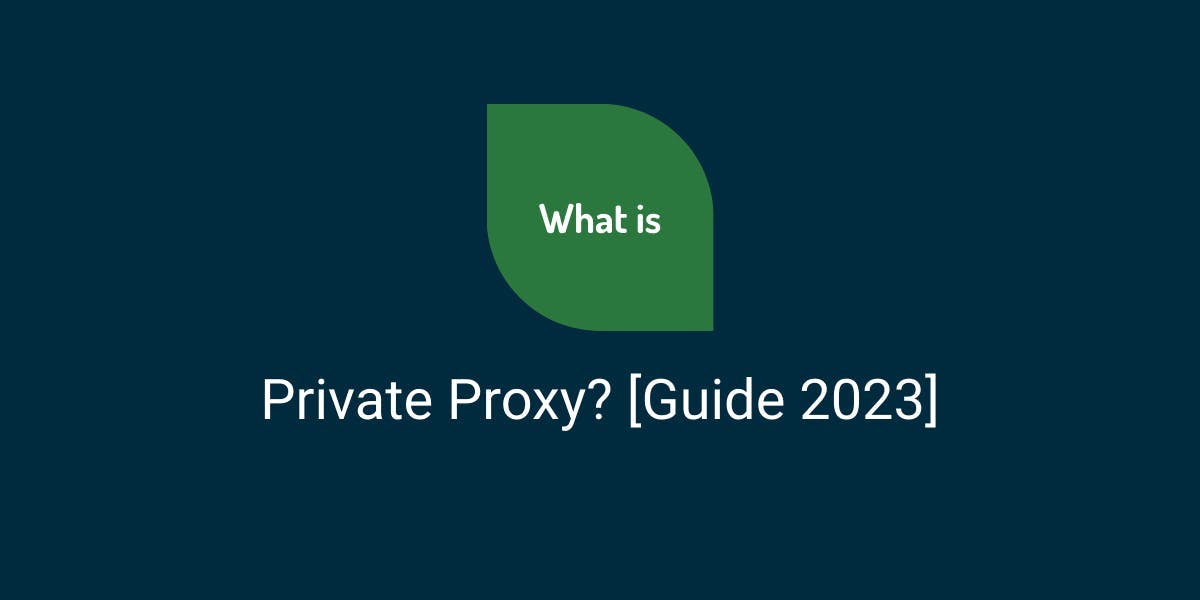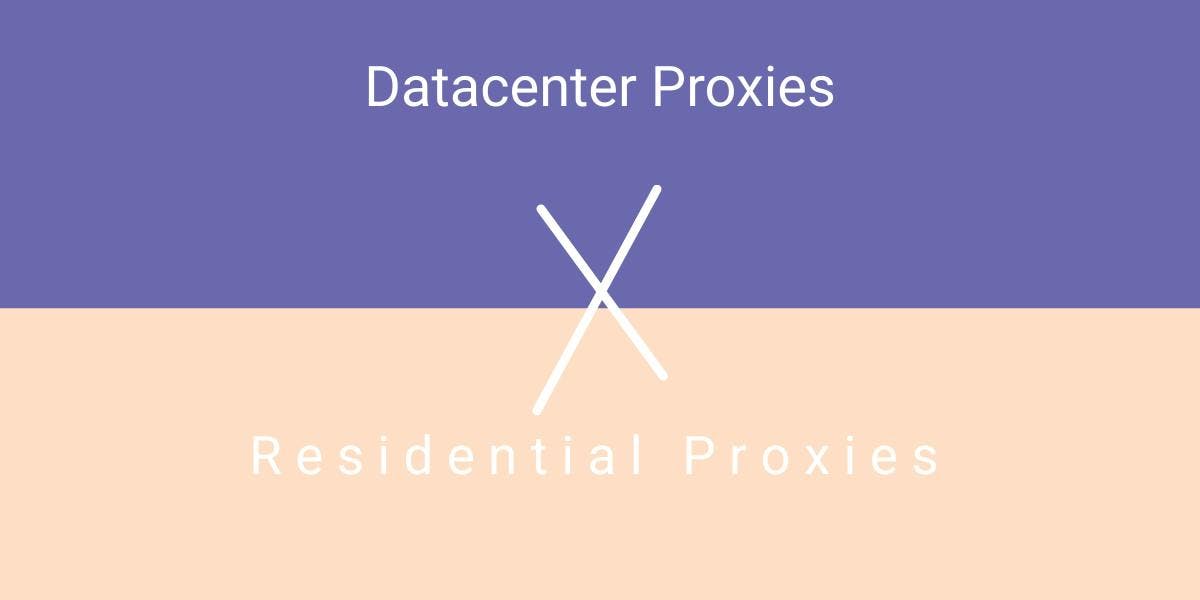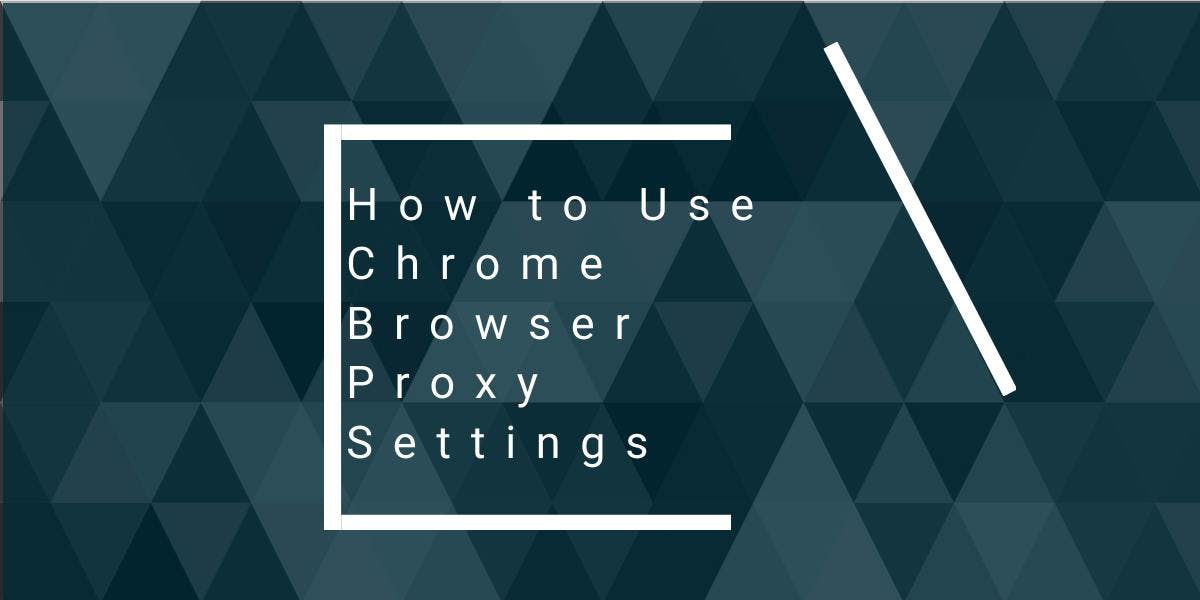Proxies for Cybersecurity Solutions
Flipnode on Jun 21 2023

In today's interconnected world, robust cybersecurity solutions are essential to protect sensitive data and maintain a secure online presence. Proxies play a crucial role in bolstering cybersecurity efforts by providing an additional layer of protection, enhancing anonymity, and enabling control over internet traffic. In this comprehensive guide, we explore the role of proxies in cybersecurity solutions, their applications, benefits, and best practices for implementation. Join us as we unlock the potential of proxies for enhanced cybersecurity in an ever-evolving digital landscape.
What are proxies
Proxies play a crucial role in the realm of online security and privacy. In simple terms, a proxy acts as an intermediary between a user's device and the internet. When a user makes a request to access a website, the request is first routed through the proxy server, which then communicates with the website on behalf of the user. This process helps conceal the user's real IP address, providing a layer of anonymity and privacy.
One of the key benefits of using proxies is the ability to mask your IP address. Every device connected to the internet has a unique IP address, which can be used to identify its location and track online activities. By utilizing a proxy, you can replace your IP address with that of the proxy server, making it difficult for websites and online services to trace your online actions back to your original device.
Moreover, proxies enable users to access geographically restricted content. Some websites and online services restrict access based on the user's location. By connecting through a proxy server located in a different region or country, users can bypass these restrictions and access the content they desire. This can be particularly useful for individuals who want to stream region-specific media or access websites that are blocked in their own country.
In summary, proxies act as a middleman between users and the internet, offering benefits such as enhanced privacy, anonymity, and the ability to bypass geographical restrictions. By leveraging proxies, individuals and businesses can strengthen their cybersecurity measures, protect their online identities, and access content that may otherwise be inaccessible. Understanding the role and functionality of proxies can empower users to make informed decisions about their online activities and ensure a safer and more unrestricted internet experience.
Understanding Proxies in Cybersecurity
In the realm of cybersecurity, proxies play a vital role in safeguarding online activities and enhancing privacy. Proxies act as intermediaries between users and the internet, providing a layer of protection and anonymity. By understanding how proxies work and their significance in cybersecurity, you can better comprehend their role in safeguarding your digital presence.
Proxies serve as a shield, separating user devices from the websites and services they access. When a user makes a request to access a website, the request is first directed to the proxy server. The proxy server then forwards the request to the target website, acting as a middleman between the user and the internet. This process allows proxies to mask the user's real IP address and replace it with the IP address of the proxy server.
The use of proxies brings several benefits to the realm of cybersecurity. First and foremost, proxies enhance privacy by hiding the user's IP address, making it challenging for adversaries to track their online activities. This added layer of anonymity is particularly crucial when accessing sensitive information or evading censorship or surveillance.
Proxies also contribute to security by acting as a buffer between users and potentially malicious websites. Proxies can filter and inspect incoming traffic, blocking access to suspicious or dangerous sites and preventing malware or phishing attempts from reaching user devices. Additionally, proxies can enforce strict security policies, such as content filtering and access control, to ensure a safer browsing experience.
Understanding the different types of proxies is essential for effective cybersecurity strategies. Forward proxies, reverse proxies, residential proxies, and datacenter proxies each serve specific purposes and offer unique features. By comprehending the strengths and limitations of each proxy type, you can make informed decisions when selecting the most suitable proxy for your cybersecurity needs.
Types of Proxies for Enhanced Security
In the world of cybersecurity solutions, understanding the different types of proxies is essential. Proxies come in various forms, each serving distinct purposes and offering unique functionalities. By delving into the types of proxies available, you can gain a deeper understanding of their capabilities and determine which proxy type best suits your specific cybersecurity needs.
1.1. Forward Proxies: The Gatekeepers
Forward proxies, also known as regular proxies or simply proxies, act as intermediaries between client devices and the internet. When a user requests access to a website or online service, the request passes through the forward proxy server before reaching its destination. Forward proxies are primarily used to enhance privacy and security by hiding the user's real IP address, providing anonymity and protecting against potential threats.
1.2. Reverse Proxies: Safeguarding Web Servers
While forward proxies focus on client-side protection, reverse proxies operate on the server side. Reverse proxies are positioned in front of web servers and handle incoming requests from clients. They are responsible for distributing traffic, load balancing, caching static content, and providing an additional layer of security by shielding the web server's identity and IP address. Reverse proxies are commonly employed in scenarios where there is a need for improved performance, scalability, and protection for web applications.
1.3. Residential Proxies: Blending In
Residential proxies mimic real residential IP addresses assigned to internet service subscribers. These proxies route user requests through legitimate residential IP addresses, making them appear as regular internet users. Residential proxies are highly sought after for tasks that require authenticity, such as web scraping, social media management, and ad verification. With residential proxies, you can navigate the web more discreetly, accessing geo-restricted content and avoiding detection from websites that employ IP-based blocking or anti-bot measures.
1.4. Datacenter Proxies: Speed and Reliability
Datacenter proxies are server-based proxies that are not associated with internet service providers or residential networks. They offer high-speed connections, excellent performance, and are commonly used for tasks that require speed, such as web scraping, SEO monitoring, and market research. Datacenter proxies provide users with a pool of IP addresses from various locations, enabling them to rotate between IPs and maintain anonymity while conducting online activities.
Understanding the different types of proxies is the first step towards leveraging their benefits for your cybersecurity solutions. Each proxy type offers distinct features and use cases, allowing you to choose the most suitable option based on your specific requirements. By exploring the various proxy types in detail, you can make informed decisions about implementing proxies to bolster your online security, privacy, and data protection measures.
Proxies and Anonymity: Safeguarding Online Identity
In today's digital age, safeguarding online identity and preserving anonymity have become paramount concerns. With the rise of data breaches, surveillance, and targeted advertising, individuals and organizations alike seek effective solutions to protect their online presence. Proxies, a fundamental component of cybersecurity, offer a powerful mechanism to maintain anonymity and safeguard online identity.
Proxies serve as intermediaries between users and the internet, acting as a shield to mask the user's real IP address. By redirecting internet traffic through a proxy server, users can obscure their true identity and location. This anonymity is crucial for various reasons, including protecting sensitive personal information, preventing tracking by third parties, and evading geographic restrictions or censorship.
By employing proxies, individuals and organizations can maintain a level of privacy that shields them from prying eyes. Proxies prevent websites, online services, and malicious actors from directly accessing personal IP addresses, adding an extra layer of protection against potential threats. This safeguarding of online identity becomes particularly critical when accessing sensitive data, conducting confidential transactions, or engaging in activities where privacy is of utmost importance.
Anonymity provided by proxies also empowers users to take control of their online experience. It allows individuals to explore the internet without leaving a trace of their actual identity, reducing the risk of targeted advertising and unwanted profiling. Moreover, proxies enable individuals to bypass geographical restrictions, granting access to content and services that may be blocked or limited in their region.
However, it is important to note that not all proxies guarantee complete anonymity. While proxies can hide IP addresses, other identifying factors such as cookies, browser fingerprints, and personal login information can still compromise anonymity. Additionally, the choice of a trustworthy and reliable proxy service provider is crucial to ensure data privacy and secure connections.
Leveraging Proxies for Secure Web Access
In the digital landscape, secure web access is of utmost importance to protect sensitive information and maintain privacy. Proxies offer a valuable solution for enhancing security and ensuring a safe browsing experience. By understanding and leveraging proxies effectively, individuals and organizations can fortify their web access and mitigate potential risks.
Proxies act as intermediaries between users and web servers, serving as a buffer that shields the user's device from direct contact with the internet. This intermediary layer adds an extra level of security by filtering and inspecting incoming and outgoing traffic, detecting and blocking malicious activities, and providing an additional barrier against cyber threats.
One key benefit of leveraging proxies for secure web access is the ability to hide the user's real IP address. By routing web traffic through a proxy server, the user's IP address remains hidden, making it challenging for malicious actors to track their online activities and target them for cyber attacks. This anonymity provides a crucial safeguard against potential security breaches and identity theft.
Proxies also offer features like encryption and data caching, further enhancing security during web access. Encrypted connections between the user's device and the proxy server ensure that sensitive information remains confidential and protected from eavesdropping or interception. Additionally, data caching allows the proxy server to store frequently accessed web content, reducing the load on web servers and enhancing browsing speed while minimizing the risk of accessing potentially compromised or malicious websites.
Moreover, proxies can enforce access control policies, allowing organizations to define and manage user permissions and restrictions. By implementing proxy-based access controls, organizations can restrict access to certain websites or categories, block malicious domains, and prevent unauthorized downloads or uploads. This granular control over web access helps in mitigating the risk of malware infections, data leakage, and unproductive web browsing.
However, it is essential to choose reputable and reliable proxy services to ensure the effectiveness and integrity of secure web access. Trusted proxy service providers offer advanced security features, regular updates, and robust infrastructure to safeguard against emerging threats.
Best Practices for Implementing Proxies in Cybersecurity Solutions
Implementing proxies in cybersecurity solutions is a critical step in enhancing online security and protecting sensitive information. To ensure the effectiveness and efficiency of proxy deployments, it is essential to follow best practices that align with industry standards and security requirements. By adhering to these practices, organizations can maximize the benefits of proxies and strengthen their overall cybersecurity posture.
- Define a Clear Proxy Strategy: Start by defining a clear proxy strategy that aligns with your organization's security objectives and compliance requirements. Determine the specific use cases for proxies, such as web filtering, access control, or traffic monitoring. Identify the types of proxies that best suit your needs, such as forward proxies, reverse proxies, or transparent proxies. Having a well-defined strategy helps in selecting the right proxy technologies and configurations.
- Implement Strong Authentication and Access Controls: Secure proxy implementations require robust authentication mechanisms to ensure authorized access. Implement strong authentication methods such as two-factor authentication (2FA) or certificate-based authentication for users and devices accessing the proxies. Additionally, establish access controls to enforce granular permissions and restrict proxy usage based on user roles, groups, or IP addresses.
- Regularly Update and Patch Proxy Servers: Proxy servers, like any other software, may have vulnerabilities that can be exploited by attackers. It is crucial to keep proxy servers up to date with the latest patches and security updates. Regularly monitor vendor releases and security bulletins to stay informed about any vulnerabilities and apply patches promptly. This practice helps in mitigating the risk of potential security breaches.
- Implement Secure Communication Protocols: Ensure that the communication between clients, proxy servers, and destination servers is encrypted using secure protocols such as HTTPS. Secure communication protocols protect sensitive data transmitted through the proxy from unauthorized access or interception. Enforce the use of secure protocols by configuring the proxies to reject unencrypted or insecure connections.
- Monitor and Analyze Proxy Logs: Proxy logs contain valuable information about user activities, traffic patterns, and potential security incidents. Implement a robust logging and monitoring system to capture and analyze proxy logs effectively. Regularly review the logs to detect any suspicious activities, anomalies, or unauthorized access attempts. This proactive monitoring helps in identifying and responding to security incidents promptly.
- Regularly Assess and Test Proxy Configurations: Conduct regular assessments and penetration tests to evaluate the security of your proxy configurations. Test the effectiveness of access controls, authentication mechanisms, and traffic filtering rules. Identify and address any vulnerabilities or misconfigurations that could be exploited by attackers.
- Maintain Redundancy and High Availability: Implement redundancy and high availability measures to ensure uninterrupted proxy services. Deploy multiple proxy servers in a load-balanced configuration to distribute traffic and avoid single points of failure. Regularly test failover mechanisms to ensure seamless operation in the event of server failures.
By following these best practices, organizations can maximize the benefits of proxy deployments in their cybersecurity solutions. Proxies play a crucial role in protecting against various cyber threats, providing enhanced visibility and control over network traffic, and strengthening overall security defenses.



